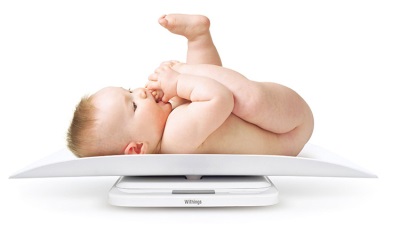How long and how long should I feed my baby with breast milk?
More modern moms are set to breast-feeding. However, the lack of experience causes them many questions and difficulties. One of these controversial issues is the time of breastfeeding.
Breast sucking time
The duration of one breastfeeding is highly dependent on the age of the baby, his character and other factors. As a rule, it ranges from 10 to 40 minutes. At the same time, more fatty back milk begins to flow to the baby approximately 10–15 minutes after sucking.
For breastfeeding to be successful and hassle-free, breastfeeding moms should be given breast feeding to the baby upon request. Opponents of this approach say that it will “tie” mom to the child and deprive her of free time. But if you look at the process through the eyes of a child, it becomes clear that this is an important period of transition from nutrition through the umbilical cord to the usual adult food. It is the mother who helps the baby to adapt to nutrition in the postpartum period.
The baby during the prenatal period was used to getting “food” all the time, so he is not familiar with hunger or with a feeling of fullness after eating. And if the mother will give him the breast always, when the baby asks for it (and he will constantly ask for it right after the birth), the baby will overeat and burp, and then suck again. And really, at first mom will have the feeling that she does not belong to herself, but only to her baby. However, it will take several months and the child will begin to attach to the chest less often, and it will become faster to be saturated. And most importantly, he learns to wait. It will take a year or two, and the crumb will already sit at the table with the whole family, and at night - sleep. In the meantime, he is a newborn baby eats when he wants.
Are there any time limits?
The time at the breast should be determined by the child. It is believed that the child eats for 10-15 minutes, and then only "dabbles". And, accordingly, this “pampering” should be stopped, and the time of sucking should be limited. But supporters of this opinion forget that the baby in her mother's breast does not just eat. For an infant, the mother's breast is an opportunity to both calm down and satisfy the sucking reflex and to feel mother's caress. Should I limit this little man? In addition, it is after 15 minutes from the start of feeding the baby begins to get more nutritious and fatty back milk.

How to understand that the child has eaten enough?
There are only two reliable ways to find out if a baby is eating up:
- Look at the monthly weight gain.
- Calculate the number of urinations per day.
If the mother has enough milk, then the baby will each month add from 500 grams (each week from 125 g), and will water from 10-12 diapers and more per day. Weight gain of less than 500 g per month and the number of wet diapers per day less than 6-8 are objective signs that the baby does not have enough food from her mother’s breast.
What should you pay attention to?
When a mother is worried about whether the baby has enough food, she can erroneously focus on criteria that do not at all confirm the lack of milk. Such erroneous criteria include:
- Lack of tides and leakage of milk from the breast. If the lactation is already established, the woman may no longer feel how the milk rushes. However, this is only a sign that the breast began to produce milk in the amount in which it is required for one feeding.
- Inability to express milk from the breast. Believe me, the baby sucks out of the mammary glands food more efficiently and more fully than even the best breast pump.
- Whims and crying baby between feedings, as well as during the stay on the chest. Such signs can not be called reliable. Perhaps the mother feeds the baby too rarely. Also, the baby may suffer from colic, other causes of discomfort or illness.
- Very frequent or long feedings. The most frequent reason for the introduction of the mixture is precisely the fact that the baby often asks for the breast or sucks for a long time. If the mother does not understand that her breast is important for the baby, not only as a source of food, then in such situations she decides that the baby is not eating enough.
- Greedy sucking baby, if you give him after breastfeeding a bottle of the mixture. Seeing how the baby begins to absorb the mixture, the mother decides that this is really a sign of a shortage of milk. However, the baby can simply satisfy the sucking reflex.
- Frequent waking at night. This reason is considered very important by the older generation, confident that the baby’s tummy should “rest” at night. However, it is from nightly feeding that the production of hormones important for lactation, and, accordingly, the success of breastfeeding depends.
Breastfeeding duration
Timing of the end of breastfeeding is one of the controversial topics. Even though the majority of young mothers understand the value of breast milk for an infant, the number of children who receive breast milk for a year or more is very small. This is facilitated by the presence of a large number of myths and misinformation regarding breastfeeding, and an abundance of breast milk substitutes on the market, and social pressure due to the fact that a few decades ago, breastfeeding was rare and rare, as mother had to go to work early. But, if in the past, pediatricians more often recommended young mothers to transfer babies to the mixture, then the approach of modern doctors is aimed at promoting breastfeeding.
Experts advise to stop breastfeeding in the stage of involution. So called the time when the composition of milk is changing, and the breast is preparing to stop lactation. The beginning of the involution period is individually for different women, but most often it begins at the age of a baby 1.5-2.5 years.

After year
Mothers who feed babies older than one year often have to listen to the fact that the baby is already big and the milk is less valuable. Nevertheless, numerous studies confirm that the milk of a woman, even in the second and third years of feeding, is still beneficial for the baby.
pros
Long-feeding, without a doubt, is very useful for mom, as studies have confirmed that it reduces the risk of breast cancer and ovarian cancer. While untimely weaning is fraught with mom stasis, mastitis and other problems with the breast.
Long-term breastfeeding has many advantages for a child:
- Milk after a year of feeding changes its composition, becoming even more useful. It contains more baby-valuable fats, as well as immunoglobulins and substances that stimulate the maturation of the baby's gastrointestinal tract.
- Studies have confirmed the effect of long-term breastfeeding on the development of the child’s intelligence, as well as its more successful social adaptation when the child is 6-8 years old.
- In infants who receive breast milk after a year, infectious and allergic diseases occur less frequently, and they recover much faster than their peers, who have no support in the form of mother's milk.
- Sucking the breast after a year maintains a close emotional connection between the baby and the mother, contributing to the establishment of a trusting relationship between them.
Minuses
The negative effect of breastfeeding year-old baby does not exist. Breastmilk is still a healthy food, even if the baby is already one year old. All the troubles of long-feeding can be associated only with the desire of others to intervene in this process with their advice and frightening stories.
Optimal age
It is often found that it is enough to breastfeed for up to 6 months, and after the introduction of complementary feeding, milk is no longer necessary. So to breastfeeding are people who consider human milk only food. This, again, is due to their lack of understanding that a breast for an infant is not only food. It is also a psychological connection with mother, comfort, warmth, caress, immunity and much more. The optimal age at which you should stop breastfeeding all babies simply does not exist. For each child he will be his.
When breastfeeding is organized properly, the process usually ends at the age of the baby from 1.5 to 4.5 years, taking into account not the opinions of others, but the readiness of the mother and child.
Tips
Respond to advice from others regarding the duration of breastfeeding should be calm. It is best not to bring the conversation to disputes, because in the dispute your arguments about the benefits of long feeding will not be heard. Unpleasant questions and provocative phrases should be ignored. Sometimes the answer helps with humor. You can also answer that you follow the recommendations of the doctor or not to advertise at all that you are breastfeeding your baby after a year. Every mother should develop her own tactics in order not to be upset by the “horror stories” and disputes on a topic that is her own personal business.












